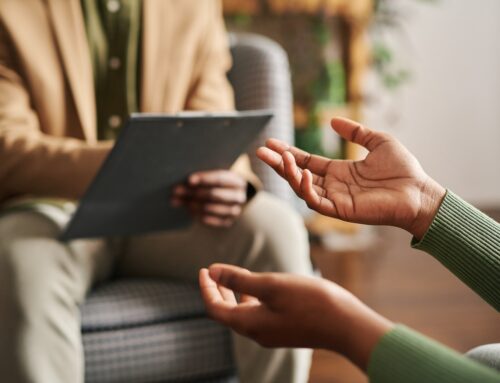Counseling isn’t just beneficial for adults; counseling for children is a game-changer for kids! When life throws curveballs, families often need a neutral third party to help them work through these situations, and children may be internalizing many difficult emotions during this time in ways that go unnoticed.
Children don’t yet have the emotional regulation skills to process anger, pain, sadness, or fear. A counselor can speak to them in a way they understand and explain the situation while offering helpful solutions.
Reasons counseling for children may help your child
Here are five reasons why counseling for children may be good for your kids:
It helps them regulate their emotions
Because kids’ brains are not fully developed, we cannot expect them to handle anger, sadness, or fear like grown-ups. When big emotions hit, some children burst into tears, others might lash out in anger, and some even resort to physical violence. This is a way for them to express their emotions because they don’t have the skills to understand appropriate ways of doing so.
A counselor will help them validate their feelings and understand why they experience pain and anger. Not only will a counselor help children understand that these emotions are normal, but also identify positive strategies to resolve them before they get out of control.
A counselor can offer strategies to express those emotions in a way that lets them out but does not seek retaliation or violence on others. For example, a counselor can help them to use a punching bag or pillow when they need to take out their aggression. A counselor can also help a child to draw their feelings on paper.
They can color (or even scribble) to get out their emotions. Then, when they are done, they can throw the paper out as a symbolic way of releasing their emotions without bottling them inside. These strategies help kids vent without causing harm, making their world (and yours) a lot safer and calmer.
It helps them process their pain
Not only do children need help regulating emotions, but they also need to understand their pain. Pain is a feeling that is triggered by specific events that often leave a child confused and uncertain.
Therefore, kids internalize their pain until it emerges in unhealthy ways. Adults make mistakes just as much as children do, but children struggle to understand this. If an adult was not raised in a safe environment, they may learn destructive behaviors that they will project onto others.
This makes children victims of issues that have nothing to do with them, causing them pain they cannot control. A counselor will understand that and discern what pain they need to process and what pain they need to release. The counselor will give them practical strategies to unpack their feelings, understand where the pain comes from, and release that pain and the accompanying emotions appropriately.
 For example, a counselor may help a child forgive a parent, understand a situation as right or wrong, and put in place healthy boundaries to protect themselves if no one is in their corner to protect them. It is difficult enough for adults to deal with painful and traumatic situations.
For example, a counselor may help a child forgive a parent, understand a situation as right or wrong, and put in place healthy boundaries to protect themselves if no one is in their corner to protect them. It is difficult enough for adults to deal with painful and traumatic situations.
It is more difficult if a child has never been taught or comforted properly. For example, when a child falls, is injured, and cries, a parent should be there to pick them up, wipe away their tears, and comfort them in their pain. They should also care for the wound and make sure it heals.
However, some parents do not have the skills to do this or might be struggling with their issues and might unintentionally pass on their unresolved pain by not comforting their children when they cry or show signs of distress.
A child may have been told to “shake it off” or not to cry or else the parent “will give them something to cry about.” The child may not learn how to comfort themselves and instead resort to destructive habits as adults. A counselor will help them process their pain in healthy ways so that, when they become adults, they can comfort themselves, heal their wounds, and live healthy lives.
It gives them healthy solutions to problems
Kids often resort to short-sighted emotional responses that temporarily help assuage their pain when they don’t understand the difference between healthy and unhealthy relationships. For example, a child who is frustrated that he or she cannot see their mom or dad due to safety reasons may feel abandoned, neglected, etc. The counselor will help them understand that it’s not their fault and teach them constructive ways to cope.
A counselor will help them build up a child’s self-esteem and identity, ensuring they don’t internalize anger, resentment, sadness, or pain. This prevents them from becoming victims or victimizing others
It helps them establish healthy relationships with adults
If the child has been removed from the home, The Department of Children and Family Services has likely been involved. Therefore, they may see adults as angry, harmful, or untrustworthy. A counselor will help re-establish a child’s healthy relationships with adults.
By being treated kindly and lovingly by a counselor, they will rebuild their ability to relate to adults, and this positive interaction will help kids rebuild their ability to relate to their own parents in a way that allows them space for forgiveness, restoration, and possible reconciliation.
It helps them feel they are not alone
In tough situations, kids often feel alone in their struggle. They feel as if they cannot trust any adults. A counselor will help re-establish that trust. Through completing exercises like art therapy and communicating their feelings through drawing or other modalities of art, kids can rebuild trust with their counselors. When a counselor can repeat these feelings and tell them it’s normal and OK to feel that way, kids will begin to rebuild trust.
When the counselor allows them to feel validated with their feelings, a child can learn gradually to express those concerns verbally to the counselor. The counselor can then communicate those to the adult and help the adult process and communicate those issues in healthy ways, so the child is not used as a weapon of retaliation and revenge.
Children also need assurance that someone is on their side. A counselor can advocate for a child in ways their parents cannot. This is especially true if parents are still working out their own issues. While parents are also dealing with their issues of guilt and grief, children need someone who does not have a vested interest in the situation. A counselor can provide that essential support, seeing the situation from a fresh perspective and offering solutions in ways kids can understand.
Counseling for children no longer holds the stigma it did ten years ago. In the past, children may have been afraid to see a counselor for fear of being stigmatized or that someone may believe something is wrong with them. Today, counseling is seen as a positive step toward finding solutions and is becoming more common.
All children need a person to advocate for them and their needs. When a counselor goes above and beyond to meet the child’s emotional needs both on (and below) the surface, a child can grow up to be a resilient and emotionally healthy adult with the skills to regulate their emotions, overcome their grief and loss, and develop healthy relationships with others and their parents.
Christian counseling for children
If you’re interested in learning more about counseling for children, contact our office today to schedule an appointment with me or one of the other counselors in our online directory.
“A Boy and His Bear”, Courtesy of Kateryna Hliznitsova, Unsplash.com, Unsplash+ License






